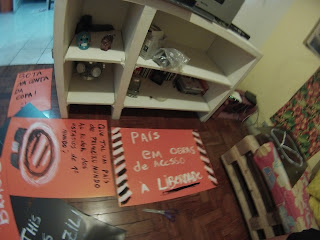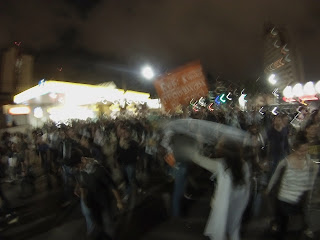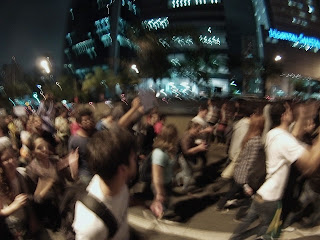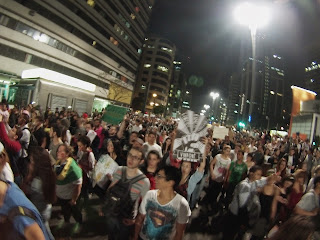David
David lives here at the guesthouse because there
isn’t enough room with his family and rent anywhere in Rio is far too high. He
teaches and his wage is far better—about 50 reis per hour—than the 8 reis per
hour most teachers earn. He can pay for his own healthcare, but most people can’t.
His work is infrequent. It isn’t for lack of
hustle—people in Rio, people in Sao Paulo, are always hustling, looking for
work, educating themselves. But the robbery and corruption of the government is
staggering and it siphons off much of the steam of an otherwise healthy
economy.
To put the corruption in perspective, David’s
mother, who worked as an architect for 30 years, earns 1,800 reis a month in
pension, about $800 a month. 30-35 years is about the benchmark for retirement.
Politicians, on the other hand, receive pension after 8 years of ‘work,’ and
receive a staggering 19,000 reis per month, or about $8,600 per month.
There is a current project in Rio to update a
tourist cable lift to a popular attraction. Many estimate the cost at about 5
million dollars, yet the local government has managed to budget a billion
dollars, most of the funds mostly likely consisting of related party
transactions rife with conflicts of interest.
When I hear these staggering stories of government
corruption and outright theft, I feel slightly more hopeful for the future of
Brasil, as people seem to be aware of the source of the problem—an active and
healthy mafia called ‘government.’ There are hundreds of thousands of people
who have descending from the hills of the largest favela in Rio who are on the
streets protesting at this moment. There will be protests every day of the year
until there is a marked decrease in corruption.
People are aware and angry—how can such a rich country have such a hard
time with education? Where is all the money going? People are paying attention
and taking to the streets. The corrupt who are in power will not be able to
sleep, and no amount of tear gas and rubber bullets will break the will of a
people who refuse to be robbed. As government is the adolescence of humanity, it
is thrilling to see Brazilians push humanity in a new form and direction.




























































